Akdeniz Chemson Additives AG
Akdeniz Chemson zählt zu den weltweit führenden Herstellern von Polymeradditiven und PVC-Stabilisatoren. Anhand der Fusion von Akdeniz Kimya und der…
In the "Master Session ONLINE" on Monday, April 7th, 2025, from 4 - 7 p.m. CET, you will receive valuable information about all master's degree programs and courses at Carinthia University of Applied Sciences (CUAS). These will be presented in 30-minute time slots each.
HERE you can register for the info session on your desired study program or course.
Participation is free of charge and without obligation.
Digitization is changing economies and business administration: new digital technologies are impacting, e.g., business models, production processes as well as personnel recruitment. The master’s degree program “Digital Transformation Management” prepares students to actively support companies and administrations in all things digital.
The degree program focuses on topics that deal with the major questions of technological change: digitization and management, e-business, digital marketing, data science and technology. These are the five major fields and each of them are covered in detail in the degree program. Students learn the changes that are necessary in the management of companies and how strategy, business models as well as the expectations of employees have to be adapted due to these changes. Digital transformation impacts how companies function internally, how companies communicate with customers and business partners, how data affects business success or even what role technology will play in companies in the future.
All of these aspects are covered in terms of practical relevance: students of the master’s degree program Digital Transformation Management over the course of their studies will - by using case studies - accompany a firm as it undergoes it own digital transformation. This “continuous case study” spans all four semesters and is an integral part of the degree program. Thus, students develop the skills needed to support companies during a digital transformation as well as its administration.
The degree program is based on close cooperation with companies both domestically and internationally. Students can make initial contact with businesses already during their studies and, thus, can position themselves already with potential employers. The range of jobs in this field are diverse and can vary between strategic and planning activities of a Chief Digital Officer, defining the marketing agenda of a Chief Marketing Officer, up to the conception and management digitization projects as a Digital Project Manager.
Winterterm 2025
Period I: 01.11.-15.03.2025
Period II: 16.03.-15.05.2025
Period III: 16.05.-15.07.2025
Period IV: 16.07.-30.09.2025*
For applicants from outside Europe applications are only accepted within Period I.
*We reserve the right not to open the period or to close it early!
The semester starts in October - we only offer intake in winterterm!
The start of lectures can be found in the individual timetable which is available after enrollment.
Online:
Tuesday & Thursday
17:40 - 21:00 h
At the site:
Friday 13:30 - 20:10 h
Saturday starting at 8:30 h
5 attendance days per month
Study Guidance
Book your personal appointment right now!
You can find out more about our advisory services, events and fairs on our website.
Language of Instruction: German
Minimum of B2, stated by either
-DAF ("Deutsch als Fremdsprache)
-ÖSD ("Österreichisches Sprachdiplom Deutsch)
-GOETHE Sprachinstitut
Admission requirements:
Please note that foreign educational documents in some cases need to be legalized as well as translated in order to apply. More information can be found in our official application guideline
In den Online-Infosessions stellt Ihnen die Programmleitung das Studium detailliert vor. Sie erhalten wertvolle Informationen zu Studieninhalt, Praktika, den Aufnahmevoraussetzungen und den vielfältigen Karrieremöglichkeiten.

Dipl.- Ing. Martin Stromberger
Program Director of Digital Business Management and Digital Transformation Management
Please contact us if you have any questions about your studies:
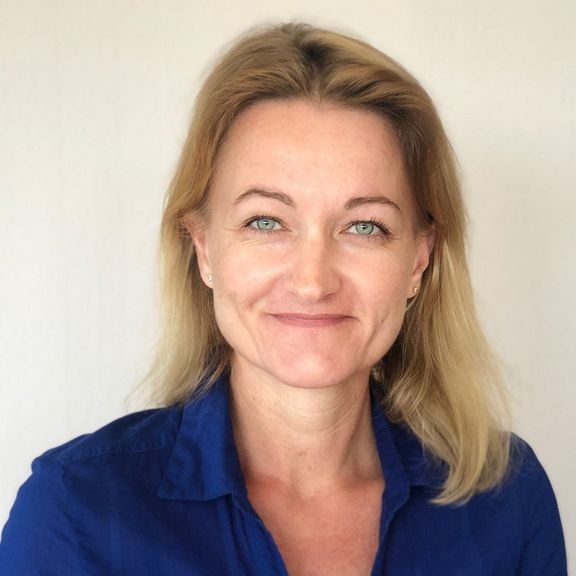
Mag. Michaela Rosenwirth
Administration of Studies
+43 5 90500 2403
m.rosenwirth[at]fh-kaernten[dot]at

Dipl.- Ing. Martin Stromberger
Program Director of Digital Business Management and Digital Transformation Management
The Master's program Digital Transformation Management is based on five curricular focuses. Knowledge in these five main areas is essential to support companies and the administration in the digital transformation. The main areas include both technological and management aspects in order to prepare students for their future professional activities. The course is offered as a full-time study program and is designed in a career-friendly manner. Students who are employed by a company in addition to their studies are offered the opportunity to combine work and study. In developing the curriculum, particular attention was paid to supporting the interdisciplinary thinking of the students and promoting the practical application of what they have learned.
Students acquire skills to help companies and administrations meet the challenges of digital change. Using a continuous case study, students learn about the digital transformation of a company. Close business contacts support students in their direct transition into professional life.
Students should have an interest in digital topics as well as the ability to work in teams and to lead them.
Admission to the Master's program "Digital Transformation Management" is subject to the completion of a relevant Fachhochschule Bachelor's program or the completion of an equivalent program at a recognised domestic or foreign post-secondary educational institution.
Relevant Bachelor's degree programmes include in particular
After successful completion of their studies, graduates have the following skills and knowledge:
| Lecture | Type | SPPS | ECTS-Credits | Course number |
|---|---|---|---|---|
| Approaches and methods of digital transformation | ILV | 1,0 | 1,0 | M4.08500.10.030 |
| Customer Journey | ILV | 1,0 | 1,0 | M4.08500.10.080 |
| Statistical fundamentals of data science | ILV | 1,0 | 2,0 | M4.08500.10.090 |
| Digital marketing roadmap | ILV | 1,0 | 2,0 | M4.08500.10.070 |
| Digital business models | ILV | 2,0 | 3,0 | M4.08500.10.020 |
| E-Business/ E-Commerce/ E-Government | ILV | 2,0 | 3,0 | M4.08500.10.040 |
| Principles of Digitalization | ILV | 1,0 | 2,0 | M4.08500.10.010 |
| inductive statistics | ILV | 2,0 | 3,0 | M4.08500.10.100 |
| IT Security | ILV | 2,0 | 3,0 | M4.08500.10.130 |
| technology management methods | ILV | 2,0 | 3,0 | M4.08500.10.120 |
| E-Business platforms | ILV | 2,0 | 3,0 | M4.08500.10.050 |
| R Programming | ILV | 1,0 | 1,0 | M4.08500.10.110 |
| Strategic marketing | ILV | 2,0 | 3,0 | M4.08500.10.060 |
| Lecture | Type | SPPS | ECTS-Credits | Course number |
|---|---|---|---|---|
| Blockchain | ILV | 1,0 | 2,0 | M4.08500.30.391 |
| Business Intelligence and Big Data | ILV | 2,0 | 3,0 | M4.08500.30.351 |
| Cloud Computing | ILV | 1,0 | 1,0 | M4.08500.30.370 |
| Collaboration and culture | ILV | 2,0 | 3,0 | M4.08500.30.280 |
| collaboration and integration | ILV | 2,0 | 3,0 | M4.08500.30.310 |
| CRM Management | ILV | 1,0 | 2,0 | M4.08500.30.340 |
| Data Privacy & Data Compliance | ILV | 1,0 | 2,0 | M4.08500.30.360 |
| Digital Leadership | ILV | 2,0 | 3,0 | M4.08500.30.290 |
| Emerging Technologies | ILV | 2,0 | 3,0 | M4.08500.30.401 |
| Lead management | ILV | 2,0 | 3,0 | M4.08500.30.320 |
| Programmatic Advertising | ILV | 1,0 | 1,0 | M4.08500.30.331 |
| strategic management of eBusiness | ILV | 2,0 | 3,0 | M4.08500.30.300 |
| Virtual and Augmented Reality | ILV | 1,0 | 1,0 | M4.08500.30.381 |
| Lecture | Type | SPPS | ECTS-Credits | Course number |
|---|---|---|---|---|
| Artifical intelligence | ILV | 2,0 | 3,0 | M4.08500.20.270 |
| Content marketing | ILV | 1,0 | 1,0 | M4.08500.20.190 |
| Digital economy | ILV | 2,0 | 3,0 | M4.08500.20.150 |
| Digitalization and ethics | ILV | 1,0 | 1,0 | M4.08500.20.141 |
| Legal basis of digitalization | ILV | 1,0 | 2,0 | M4.08500.20.160 |
| Enterprise content management | ILV | 2,0 | 3,0 | M4.08500.20.171 |
| Industry 4.0 | ILV | 1,0 | 2,0 | M4.08500.20.260 |
| Internet of things | ILV | 1,0 | 1,0 | M4.08500.20.250 |
| Machine Learning | ILV | 1,0 | 2,0 | M4.08500.20.240 |
| Multivariate statistics | ILV | 1,0 | 1,0 | M4.08500.20.220 |
| Process management and E-business | ILV | 2,0 | 3,0 | M4.08500.20.180 |
| SEO/SEM | ILV | 2,0 | 3,0 | M4.08500.20.200 |
| Social Media Marketing | ILV | 1,0 | 2,0 | M4.08500.20.211 |
| Web analytics | ILV | 2,0 | 3,0 | M4.08500.20.230 |
| Lecture | Type | SPPS | ECTS-Credits | Course number |
|---|---|---|---|---|
| Change Methods | ILV | 1,0 | 2,0 | M4.08500.40.430 |
| Digital Transformation Modelling | ILV | 2,0 | 3,0 | M4.08500.40.420 |
| Master's Thesis | MT | 0,0 | 19,0 | M4.08500.40.450 |
| Master's examination | ME | 0,0 | 3,0 | M4.08500.40.460 |
| Master's Thesis Seminar | SE | 2,0 | 2,0 | M4.08500.40.440 |
| Start-up and digital entrepreneurship | ILV | 1,0 | 1,0 | M4.08500.40.411 |
| Lecture | Type | SPPS | ECTS-Credits | Course number |
|---|---|---|---|---|
| Approaches and methods of digital transformation | ILV | 1,0 | 1,0 | M4.08500.10.030 |
| Customer Journey | ILV | 1,0 | 1,0 | M4.08500.10.080 |
| Statistical fundamentals of data science | ILV | 1,0 | 2,0 | M4.08500.10.090 |
| Digital marketing roadmap | ILV | 1,0 | 2,0 | M4.08500.10.070 |
| Digital business models | ILV | 2,0 | 3,0 | M4.08500.10.020 |
| E-Business/ E-Commerce/ E-Government | ILV | 2,0 | 3,0 | M4.08500.10.040 |
| Principles of Digitalization | ILV | 1,0 | 2,0 | M4.08500.10.010 |
| inductive statistics | ILV | 2,0 | 3,0 | M4.08500.10.100 |
| IT Security | ILV | 2,0 | 3,0 | M4.08500.10.130 |
| technology management methods | ILV | 2,0 | 3,0 | M4.08500.10.120 |
| E-Business platforms | ILV | 2,0 | 3,0 | M4.08500.10.050 |
| R Programming | ILV | 1,0 | 1,0 | M4.08500.10.110 |
| Strategic marketing | ILV | 2,0 | 3,0 | M4.08500.10.060 |
| Lecture | Type | SPPS | ECTS-Credits | Course number |
|---|---|---|---|---|
| Blockchain | ILV | 1,0 | 2,0 | M4.08500.30.391 |
| Business Intelligence and Big Data | ILV | 2,0 | 3,0 | M4.08500.30.351 |
| Cloud Computing | ILV | 1,0 | 1,0 | M4.08500.30.370 |
| Collaboration and culture | ILV | 2,0 | 3,0 | M4.08500.30.280 |
| collaboration and integration | ILV | 2,0 | 3,0 | M4.08500.30.310 |
| CRM Management | ILV | 1,0 | 2,0 | M4.08500.30.340 |
| Data Privacy & Data Compliance | ILV | 1,0 | 2,0 | M4.08500.30.360 |
| Digital Leadership | ILV | 2,0 | 3,0 | M4.08500.30.290 |
| Emerging Technologies | ILV | 2,0 | 3,0 | M4.08500.30.401 |
| Lead management | ILV | 2,0 | 3,0 | M4.08500.30.320 |
| Programmatic Advertising | ILV | 1,0 | 1,0 | M4.08500.30.331 |
| strategic management of eBusiness | ILV | 2,0 | 3,0 | M4.08500.30.300 |
| Virtual and Augmented Reality | ILV | 1,0 | 1,0 | M4.08500.30.381 |
| Lecture | Type | SPPS | ECTS-Credits | Course number |
|---|---|---|---|---|
| Artifical intelligence | ILV | 2,0 | 3,0 | M4.08500.20.270 |
| Content marketing | ILV | 1,0 | 1,0 | M4.08500.20.190 |
| Digital economy | ILV | 2,0 | 3,0 | M4.08500.20.150 |
| Digitalization and ethics | ILV | 1,0 | 1,0 | M4.08500.20.141 |
| Legal basis of digitalization | ILV | 1,0 | 2,0 | M4.08500.20.160 |
| Enterprise content management | ILV | 2,0 | 3,0 | M4.08500.20.171 |
| Industry 4.0 | ILV | 1,0 | 2,0 | M4.08500.20.260 |
| Internet of things | ILV | 1,0 | 1,0 | M4.08500.20.250 |
| Machine Learning | ILV | 1,0 | 2,0 | M4.08500.20.240 |
| Multivariate statistics | ILV | 1,0 | 1,0 | M4.08500.20.220 |
| Process management and E-business | ILV | 2,0 | 3,0 | M4.08500.20.180 |
| SEO/SEM | ILV | 2,0 | 3,0 | M4.08500.20.200 |
| Social Media Marketing | ILV | 1,0 | 2,0 | M4.08500.20.211 |
| Web analytics | ILV | 2,0 | 3,0 | M4.08500.20.230 |
| Lecture | Type | SPPS | ECTS-Credits | Course number |
|---|---|---|---|---|
| Change Methods | ILV | 1,0 | 2,0 | M4.08500.40.430 |
| Digital Transformation Modelling | ILV | 2,0 | 3,0 | M4.08500.40.420 |
| Master's Thesis | MT | 0,0 | 19,0 | M4.08500.40.450 |
| Master's examination | ME | 0,0 | 3,0 | M4.08500.40.460 |
| Master's Thesis Seminar | SE | 2,0 | 2,0 | M4.08500.40.440 |
| Start-up and digital entrepreneurship | ILV | 1,0 | 1,0 | M4.08500.40.411 |
Digital change encompasses virtually every industry, every size of company and every area of business. Especially for small and medium-sized companies, employees with digital competence can offer a competitive advantage.
Examples of professional positions and functions:
Die Fachhochschule Kärnten unterscheidet sich von vergleichbaren Universitätsstudiengängen vor allem durch die Praxisorientierung. Neue Anforderungen, die aus sozialen Fragestellungen und technischen Innovationen hervorgehen, fließen zeitnah ein. Im Masterstudiengang Digital Transformation Management wird diese Praxisorientierung insbesondere auch durch Kooperationspartnerschaften zu ausgesuchten Kärntner Unternehmen gelegt.
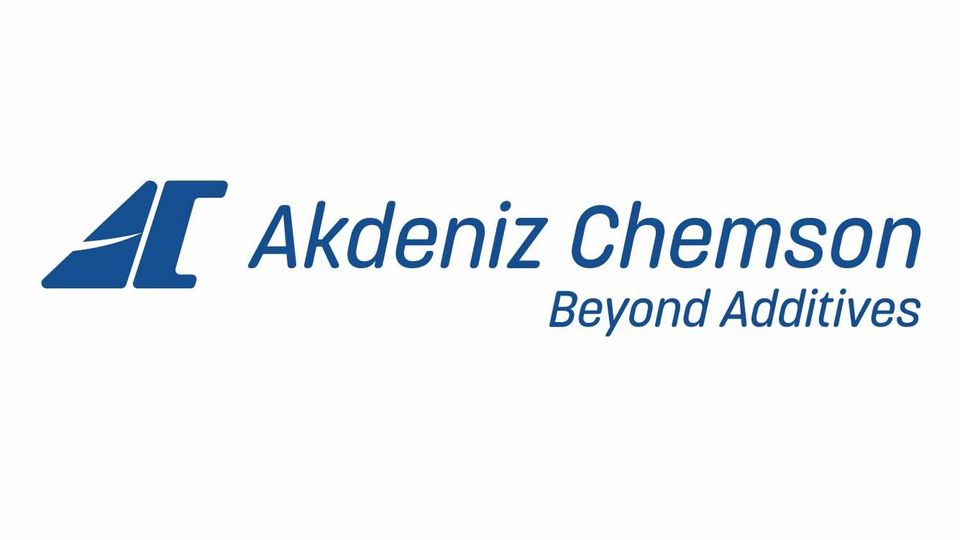
Akdeniz Chemson zählt zu den weltweit führenden Herstellern von Polymeradditiven und PVC-Stabilisatoren. Anhand der Fusion von Akdeniz Kimya und der…
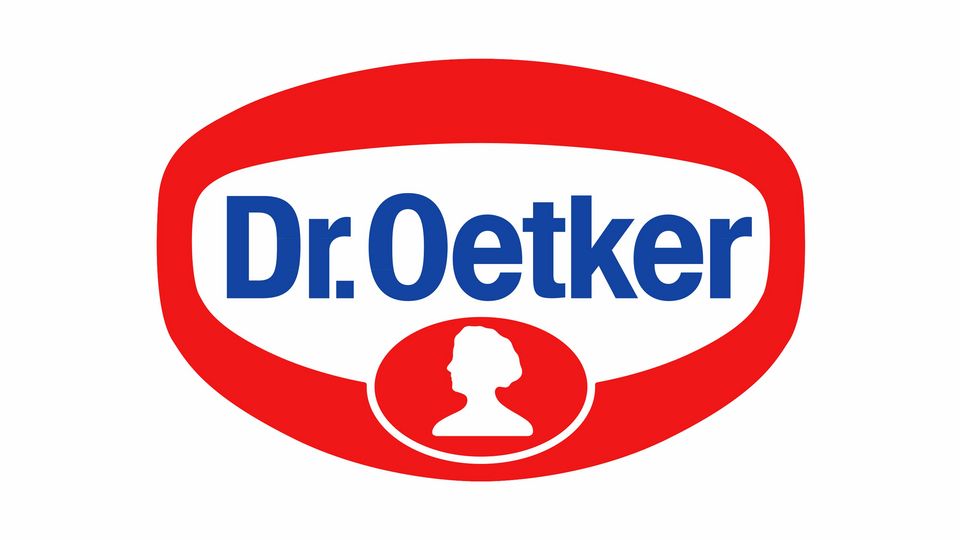
Dr. Oetker zählt mit einer Bekanntheit von 99% zu den beliebtesten Lebensmittelmarken Österreichs und ist mit dem vielfältigen Produktsortiment in…
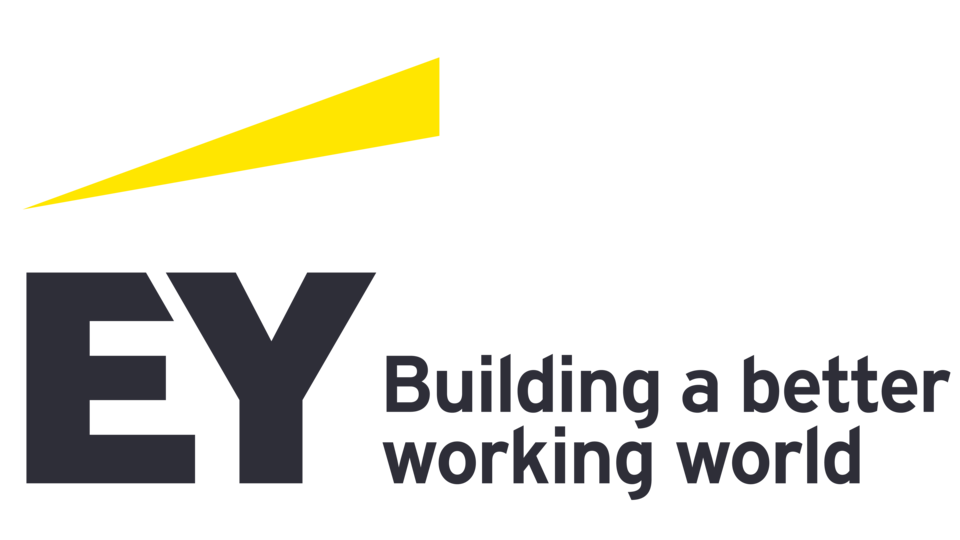
EY ist einer der globalen Marktführer in der Wirtschaftsprüfung, Steuerberatung, Transaktionsberatung und Unternehmensberatung. Das Unternehmen ist in…

Als eines der führenden Holzindustrieunternehmen Europas setzt die HASSLACHER Gruppe den Fokus auf Qualität und Innovation. Die Digitalisierung spielt…
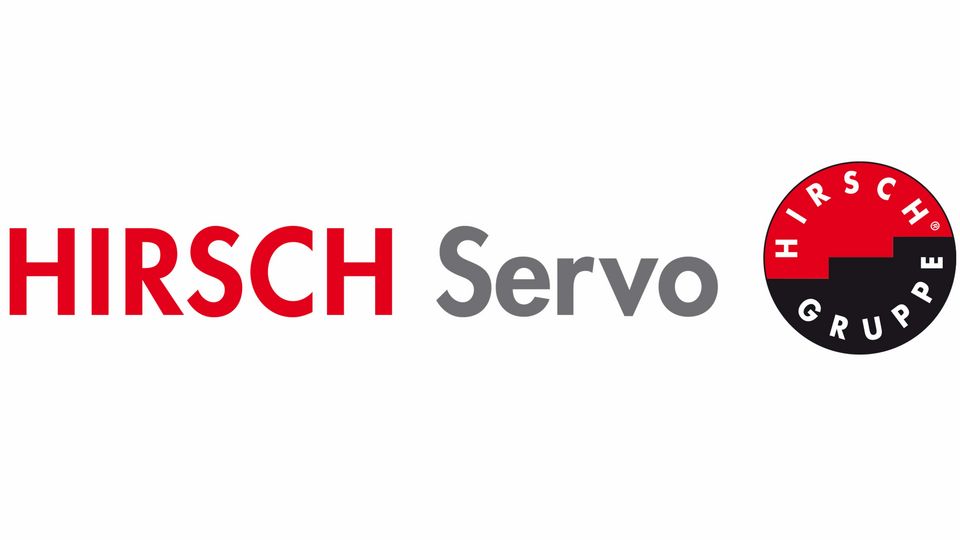
Die HIRSCH Servo Gruppe ist ein Kärntner Unternehmen zur Nutzung des Werkstoffes EPS (Expandiertes Polystyrol). 1985 stieg das Unternehmen in den…
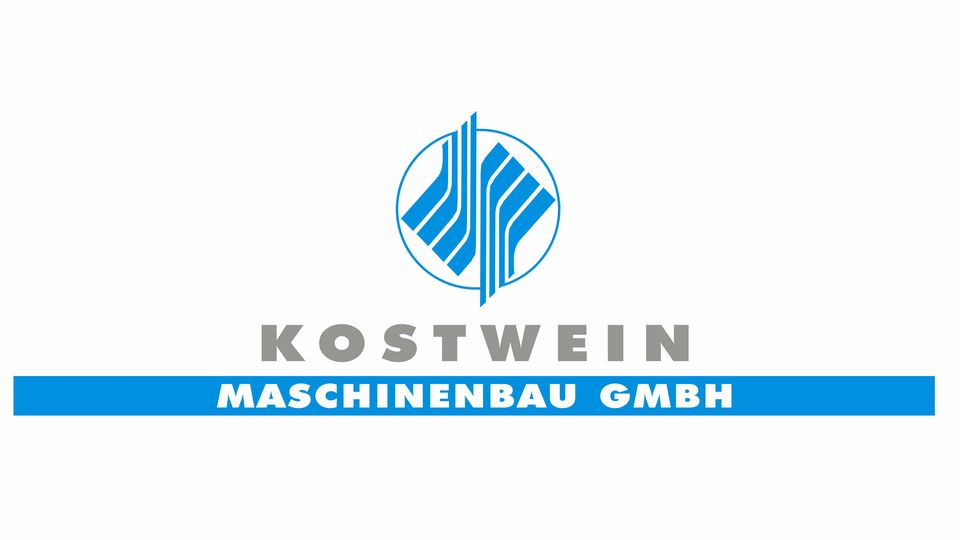
Kostwein setzt Maßstäbe in der Präzisionsfertigung, Montage und Logistik von Einzelteilen, Modulen und kompletten Maschinen für die globale…
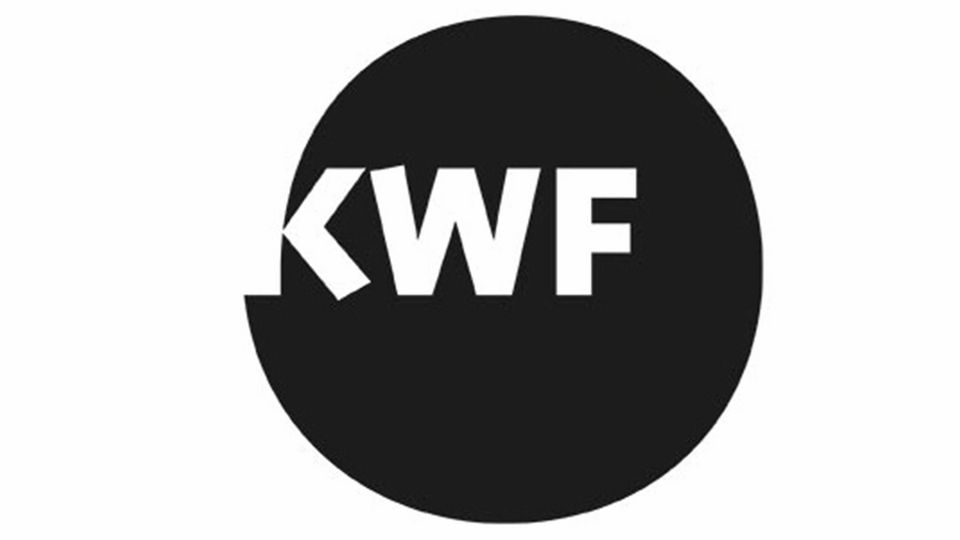
Der KWF ist eine Einrichtung des Landes Kärnten und präsentiert sich seit 1993 als verlässlicher Partner für die Kärntner Unternehmen im Bereich der…
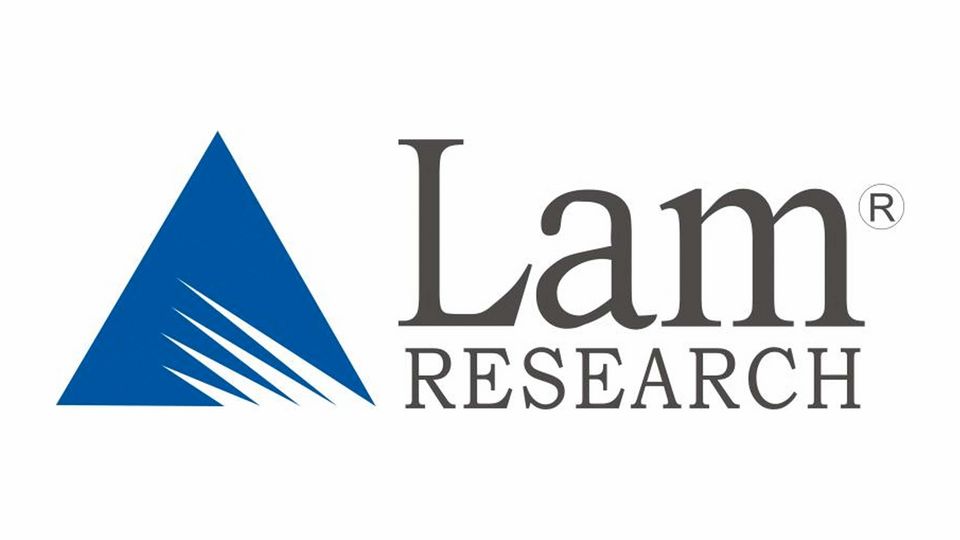
LAM Research spielt als zuverlässiger Partner der weltweit führenden Halbleiterhersteller eine Schlüsselrolle als Ermöglicher der Technologie-Roadmap.…
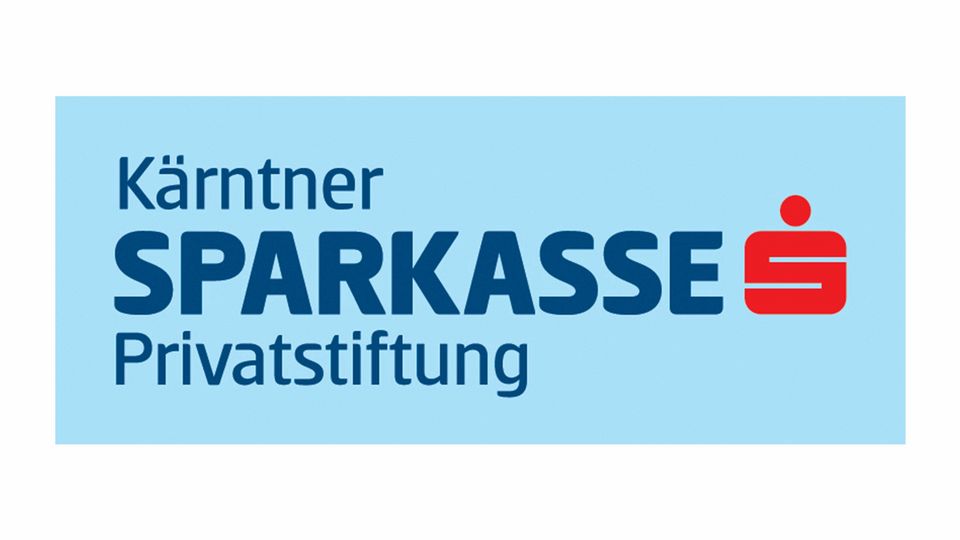
Die Geschäftstätigkeit der Privatstiftung Kärntner Sparkasse beinhaltet die Verwaltung der Beteiligung an der Kärntner Sparkasse Aktiengesellschaft.…
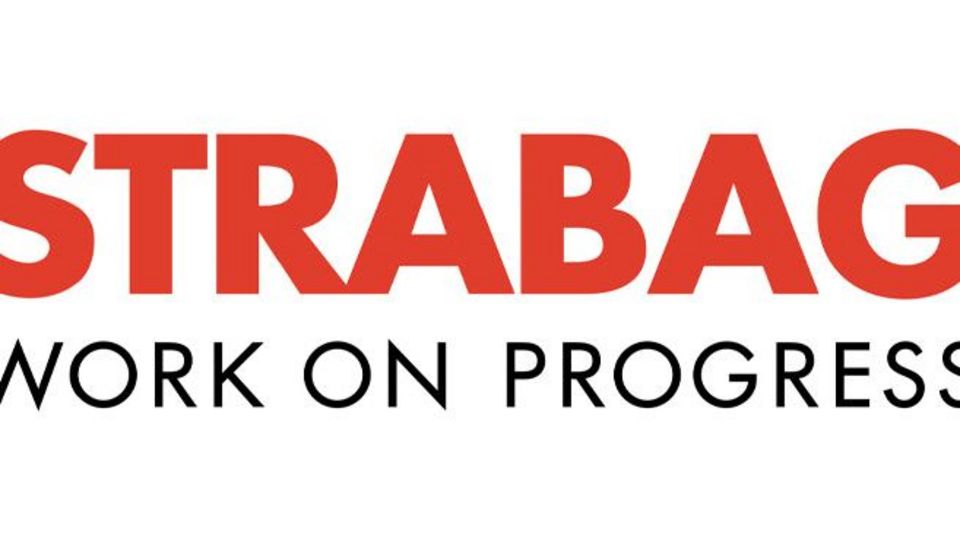
STRABAG ist eine europäische Technologiepartnerin für Baudienstleistungen, führend in Innovation und Kapitalstärke. Das Angebot umfasst sämtliche…
Dem Masterstudiengang Digital Transformation Management werden StiftungsprofessorInnen zugeordnet, die dazu beitragen, die Qualität des Studienbetriebs durch fachliche Expertise und Verbindung zur Wirtschaft sicherzustellen. Die StiftungsprofessorInnen verfügen über langjährige berufliche Erfahrung in Unternehmen im jeweiligen Schwerpunkt. Sie werden neben der Beschäftigung bei der FH Kärnten, auch weiterhin in Unternehmen beschäftigt bleiben. Es ist damit sichergestellt, dass der Praxisbezug bestehen bleibt.
Hannes Gessoni, MSc.
Stiftungsprofessor für den Schwerpunkt Digitalisierung & Management
Mag. Alexander Tauchhammer
Stiftungsprofessor für den Schwerpunkt Digital Marketing
"Zur Gestaltung der Digitalen Transformation wird das Wissen aus verschiedenen Fachbereichen ebenso benötigt, wie die Fähigkeit gesamtheitlich und umsetzungsorientiert zu denken."
FH-Prof. Dr. Wolfgang Eixelsberger
Leiter Masterstudiengang Digital Transformation Management
Dipl.-Ing.
Martin StrombergerMag.
Michaela RosenwirthMag.
Martin SchellratHon.Prof. (FH) Mag.
Alexander TauchhammerMag.
Selvana Disho, Bakk.DI Dr.
Gerhard GaubeMag. (FH)
Volker GrünauerIng.
Werner Illsinger, MBADI (FH) Dr.
Peter Claus KrieberneggMag.
Christoph NaglMag. Dr. iur.
Ludwig NotschMag.
Gerald PetzMag.
Andreas SpieglDI Dr.
Andreas Starzacher, Bakk.DI
Daniel Valtiner, BSc MBAIng. Mag. (FH)
Markus Walluschnig, MAThe Villach region combines tradition, cosmopolitanism and quality of life with the advantages of an innovative business location. Villach, a small town with about 60,000 inhabitants, is an international high-tech location with groundbreaking cooperation between science and industry and is also increasingly developing into a start-up town.
Situated directly at the intersection of three cultures, Villach, situated on the Drava river, is an important traffic junction in the Alps-Adriatic region. This special geographical location and the beautiful landscape around Villach and in the federal state of Carinthia have made the region a popular holiday destination for generations, further beyond the borders. The drinking water quality of the lakes and the particularly clean air make Villach and its surroundings an environmental paradise.
In addition to its geographical advantages, Austria also leads the world in terms of its social and health care system and is considered a particularly safe, prosperous and liveable country.
Despite the above-average prosperity and the comprehensive state social benefits, Villach compares favourably with many international destinations. The "small town bonus" comes into its own here and makes everyday life affordable.
Explore Campus Villach on a 360° Tour.
Make a virtual walk through the Science & Energy Labs – T10.
Motorway exit Wernberg, then on the B 83 approx. 2 km in the direction of Villach, after the Villach town sign the B83 passes under the A2 motorway, and then immediately right the first exit in the direction of MAGDALENEN SEE. Following the signs for Magdalenen See, the road leads through a small wooded area, always follow the road, after an S-curve past Magdalenen See (left) always straight ahead, cross the southern railway line and go uphill directly into the centre of St. Magdalene. Turn right at the top of the hill, down the road, the grounds of the technology park are already visible to the south, the chimney of the combined heat and power plant, and directly in the sharp right-hand bend turn left onto the grounds of the technology park.
Motorway exit Villach/Ossiacher See, then approx. 2 km in the direction of Villach, on the right is Gasthof Seehof, on the left is Lake Vassach, continue on the B33 left in the direction of east, Wernberg, Klagenfurt, always follow the B33, after approx. 4 km turn right in the direction of Magdalenen See. The road leads through a small forest, always follow the road, after an S-curve past Lake Magdalenen (left) always straight ahead, cross the southern railway line and go uphill directly into the centre of St.Magdalen. Turn right at the top of the hill, down the road, the grounds of the technology park are already visible to the south, the chimney of the combined heat and power plant, and directly in the sharp right-hand bend turn left onto the grounds of the technology park.
The bus company Dr. Richard runs from Villach city to the FH in about every 15 minutes. The timetables are coordinated with the timetables of the ÖBB.
Europastraße 4
9524 Villach, Austria
+43 5 90500 7700
villach[at]fh-kaernten[dot]at
Explore Campus Villach on a 360° Tour.
In order to be admitted into a bachelor degree program at the Carinthia University of Applied Sciences at least one of the following criteria must be fulfilled:
Moreover, there are degree program specific additional prerequisites as well as more comprehensive information regarding admissions on the individual web pages of the corresponding degree program. The German University of Applied Sciences (Fachhochschule) entrance qualification certificate is only valid as an admission prerequisite for an Austrian UAS/FH bachelor degree program when combined with an applicable vocational certificate.
Persons in their last year of school may apply for a study place in a bachelor degree program before taking their secondary school-leaving exams by submitting their most current secondary school grade/marks report. The secondary school-leaving certificate must be submitted during the registration process at the beginning of the semester.
In order to be admitted into a master degree program at the Carinthia University of Applied Sciences at least one of the following criteria must be fulfilled:
Persons in their last semester of their bachelor degree programs may apply for a study place in a master degree program by submitting their most current transcript of records. The completion of the bachelor degree program certificates must be submitted during the registration process at the beginning of the semester.
####ContentToReplace####
Before enrolment in a degree program at the Carinthia University of Applied Sciences, a learning agreement is concluded between the prospective student and the Carinthia University of Applied Sciences.
This contract defines the rights and obligations of the student and the Carinthia University of Applied Sciences.
The rights and obligations of the student at a glance:
The learning agreement is sent electronically to applicants who have been accepted onto a degree program. In addition to the electronic consent to the learning agreement, the timely payment of the tuition fee and the Austrian Students´ Union fee is a prerequisite for admission to the degree program.
Significant legislative basis for a UAS degree program in Austria can be found here:
FHG - Federal Act on University of Applied Sciences Degree Programs (in German only)
HS-QSG - Act on Quality Assurance in Higher Education
Regarding the accreditation of previously gained academic knowledge through courses and/or exams taken at other institutions of higher education, the respective degree program administration/director will use the principle of ‘course per course relevant accreditation.
The equivalency of the previously taken courses in terms of content and scope to the offered courses in the degree program will be determined by the degree program administrator/director. If an equivalency is determined to exist, then those courses passed with positive marks/grades will be recognized and accredited. Additional examination of academic knowledge in these cases is not foreseen.
Specialized knowledge and relevant experiences acquired through professional and on-the-job experience may also be considered for accreditation for relevant courses. In cases of accrediting professional experience for course credits, additional examinations may be carried out if applicable.
Applications for accreditation are to be submitted directly to the Program Director no later than the start date of the relevant study course(s).
The student must decide where s/he will spend the semester abroad (i.e., a partner university) and will need to coordinate with the responsible Departmental International Coordinator concerning the necessary requirements.
Before the student spends the semester abroad, s/he is required to submit a completed Learning Agreement. This document contains all the courses the student will take abroad and will be recognized at CUAS once s/he finishes the courses successfully. The courses should correspond as much as possible to the courses offered in the curriculum of the student’s CUAS study program in the relevant semester in content and semester hours. It is highly recommended to students to take 30 ECTS credits abroad.
The Learning Agreement is signed and approved by the individual student, the host institution and the program director of the study degree program or a designated faculty member at CUAS.
The Learning Agreement is a declaration of the courses which are to be taken abroad and is not valid as an official recognition document by Austrian law. Therefore, the document is to be linked to the official document “Antrag auf Anerkennung / Application for Accreditation” for academic studies abroad.
During the first four weeks of the study abroad semester the student is allowed to change the Learning Agreement. For example, previously selected courses do not take place or overlap. The host institution and CUAS must agree upon the courses to be changed. If this is approved, the changes must be listed separately on the Learning Agreement (section “Changes to the original Learning Agreement). Afterwards the document is signed and approved by the individual students, the host institution and the program director of the study degree program or a designated faculty member at CUAS.
After the semester abroad the courses taken abroad will be recognized at CUAS. Therefore, the original Transcript of Records from the host institution and the legally valid document “Antrag auf Anerkennung / Application of Accreditation” (which is linked to the Learning Agreement) are obligatory. The student lists on the document the successfully finished courses abroad. After the recognition process is positively completed, the CUAS Transcript of Records will contain those courses.
In cases where the semester abroad is not completed successfully, the Departmental Coordinator and program director of the relevant study degree program will determine on an individual basis if and what courses will be accredited and what a student can do to make up those missing credits which were not accredited.
Detailed information about a semester abroad
For further questions please contact the International Relations Office.
Degree programs at University of Applied Sciences fundamentally only offer a limited number of study places.
In the framework of the application process each applicant will carry out an interview which will influence the allocation of the study places. Additionally, specific degree study programs may require written application tests as well as content-specific/technical aptitude tests. Detailed information regarding the degree program specific application requirements are provided on the degree programs’ web pages.
Repetitive applications for a study place at the same study degree program (e.g., in the following year) is generally allowed; however, the entire application process will start anew and candidates must resubmit all documents and carry out all steps again.
Carinthia University of Applied Sciences reserves the right to levy a surety of EUR 363.36 from the applicant in case of doubt on the authenticity or correctness as regards content of the documents proving the fulfillment of the admission requirements or in case that the documents are not sufficient for a decision on the fulfillment of the admission requirements in accordance with § 4 para. 5a FHG. This surety will be reimbursed to the applicant if the review has proved the authenticity and the correctness of the documents and the fulfillment of the admission requirements.
####ContentToReplace####
Detailed information about application deadlines can be found at the websites of the respective degree programs!
Carinthia University of Applied Sciences accepts both exchange students from partner institutions and so-called ‘Free Mover’ students. The decision to accept Free Movers is made on an individual basis by the relevant Degree Program Director. In the first case an official nomination (via e-mail) from the partner institution is necessary. After the nomination the student will be provided information regarding the application procedure.
Free Movers may apply directly.
Detailed information and deadlines
In order to register as a student at CUAS, each student must fulfill the following:
The enrollment periods for each degree program will be announced in advance to all applicants.
The examination regulations are an integral part of the education contract between the student and Carinthia University of Applied Sciences. It is also available to students and lecturers on the intranet.
Exams are graded according to the FHG [Federal Act on University of Applied Sciences Degree Programs]) § 17 (1), in the Austrian Grading System:
Austrian grading scheme | Definition |
1 | EXCELLENT: |
2 | GOOD: |
3 | SATISFACTORY: |
4 | SUFFICIENT: |
Successfully completed | Positive Leistung, wo eine genaue Differenzierung nicht tunlich ist. |
5 | UNSATISFACTORY: |
Not completed | Negative performance, where a strict differentiation is not adequate |
Recognised | Transfer credits for courses with equivalent learning outcomes |
The final bachelor's and master's examinations before a committee are graded according to FHG (Federal Act on University of Applied Sciences Degree Programs) § 17 (2) in the following grading scale:
In applying this grading system, it has to be noted that the grades “Pass with merit” and “Pass with distinction” are reserved exclusively for an examination performance clearly exceeding the level of performance required to pass these final exams.
Please note: This part of the Website is only available in German.
Die Nostrifizierung ist die Anerkennung eines ausländischen Studienabschlusses (Ausbildung im tertiären Bereich/an Hochschule/Universität) als gleichwertig mit dem Abschluss des inländischen Bachelor- bzw. Masterstudiums an der FH Kärnten. Die Nostrifizierung an der FH Kärnten kann nur erfolgen, wenn ein mit dem ausländischen Studienabschluss gleichwertiger Studiengang an der FH Kärnten eingerichtet ist und sofern die Nostrifizierung zwingend für die Berufsausübung in Österreich notwendig ist (z.B. reglementierter Beruf). Ein nostrifizierter akademischer Grad entfaltet dieselben Rechtswirkungen wie ein im Inland erworbener akademischer Grad.
Innerhalb der Europäischen Union (EU) bzw. des Europäischen Wirtschaftsraumes (EWR) ist eine Nostrifizierung nicht zwingend erforderlich und daher auch nicht möglich. Die Anerkennungsentscheidung von europäischen Ausbildungen in einem reglementierten Beruf (z.B. im Bereich der medizinisch-technischen Dienste, Hebammen und Gesundheits- und Krankenpflege) erfolgt in Österreich durch die zuständige Behörde (das für Gesundheit zuständige Ministerium bzw. Landesregierungen).
Auszug aus: nostrifizierung.at
Nostrifizierungsansuchen können nur für Studienabschlüsse eingebracht werden, welche mit dem Studienangebot der FachhochschuleKärnten übereinstimmen.
Die Nostrifizierung ist ein Verwaltungsverfahren an einer Universität bzw. Fachhochschule, die an bestimmte Voraussetzungen gebunden ist.
Der/Die Antragsteller/in muss nachweisen, dass die Nostrifizierung für seine/ihre angestrebte Tätigkeit in Österreich eine zwingende (siehe: „Was ist vorzulegen?“) Voraussetzung ist. In allen anderen Fällen obliegt die Bewertung des ausländischen Studiums ohnehin dem/der Arbeit- oder Dienstgeber/in.
Die Nostrifizierung kann an jeder Universität bzw. Fachhochschule, an der ein vergleichbares österreichisches Studium eingerichtet ist, beantragt werden. In vielen Fällen kommen daher mehrere Universitäten bzw. Fachhochschulen in Betracht. An welcher davon der/die Antragsteller/in in einem solchen Fall das Verfahren beantragt, bleibt seiner/ihrer Wahl überlassen. Der gleiche Nostrifizierungsantrag kann jedoch nur an einer Hochschule eingebracht werden.
Siehe: Notwendige Anlagen zum Antrag auf Nostrifizierung
Die Nostrifizierungstaxe beträgt derzeit EUR 150,00 und ist im Voraus zu entrichten. Dazu kommen Gebühren und Verwaltungsabgaben. Mehr Informationen unter Anlagen zur Nostrifizierung.
Kriterien der Überprüfung sind Inhalte, Umfang und Anforderungen desjenigen österreichischen Studiums, mit dessen Abschluss die Gleichwertigkeit beantragt wird. Wenn einzelne Voraussetzungen nicht zutreffen, können diese als außerordentliche/r Studierende/r absolviert werden. Sämtliche Bedingungen werden mit Bescheid vorgeschrieben. Wenn der/die Antragsteller/in alle zusätzlichen Bedingungen erfüllt hat oder wenn keine Bedingungen vorgeschrieben wurden, stellt die zuständige Stelle die Nostrifizierung fest.
..., weil die Unterschiede zum österreichischen Studium zu groß sind, kann um Zulassung zum österreichischen Studium angesucht und nach erfolgter Zulassung die Anerkennung von Prüfungen aus dem ausländischen Studium, soweit sie den österreichischen gleichwertig sind, erfolgen. Danach kann das österreichische Studium fortgesetzt und abgeschlossen werden.
Auszug aus: Wie-Verläuft-eine-Nostrifizierung
The European Credit Transfer and Accumulation System (ECTS) is a student-oriented system to accumulate and transfer different study credits.
The ECTS is one of the main characteristics of the Bologna Process and is used within the European tertiary system to allow universities and other institutes of higher education to recognize and accredit students’ previous post-secondary coursework. Moreover, this allows students to accumulate credits from different institutions as well ensure that their tertiary degrees are recognized internationally. Thus, the ECTS-system regulates not only student mobility within Europe but also the admission to institutes for further studies.
The system is based upon the transparency of defined learning outcomes and learning processes. The acquisition of experience and knowledge is made transparent through the defined learning outcomes in the course description, the corresponding curriculum module and the degree program’s entire curriculum; this significantly contributes to quality assurance.
ETCS credits are calculated based upon a student’s workload, which in normal cases is necessary to pass a course successfully.
The learning outcomes describe what students should know, understand and be able to do after the successful completion of a learning process. The work load defines the amount of time typically necessary for all learning activities (e.g., lectures, seminars, projects, lab exercises, self-study, exams) in order to achieve the expected learning outcomes.
Within the European tertiary system, a semester is assessed to have 30 ECTS credits and an academic year 60 ECTS credits. The workload for an academic year ranges between 1.500 and 1.800 hours. In Austria, one ECTS credit is equivalent to a workload of 25 real hours.
The Learning Agreement (an agreement to accredit courses completed in a semester abroad) encompasses a listing of all the courses/modules/learning units that a student is to attend and complete at the partner university during the semester abroad. The courses’ ID-numbers and the ECTS credits to be transferred are listed in this document as well. When a ECTS credit transfer is to take place, then the learning agreement must be signed and approved by all three parties involved before the semester abroad: the student, the host institution and the sending institution. It is possible to make amendments to the learning agreement four weeks after the begin of the semester abroad.
The document Confirmation of Stay (Aufenthaltsbestätigung) confirms the actual stay of students at the host institution and is normally issued by the International Relations Office. The document may be issued by the host institute’s International Relations Office at the earliest two weeks before students abroad depart back to their home countries. This document is mandatory for Erasmus+ students.
The Transcript of Records (Datenabschrift) provides an overview of all study courses (completed courses/modules, grades/marks and the number of achieved ETCS credits). The ToR provides a proof of courses successfully completed and thus is very useful for student mobility (before the semester abroad, the ToR can be provided to the host institution and after the semester abroad, it provides the foundation for the recognition/accreditation of courses completed abroad at the sending institution).
The Diploma Supplement (Diplomzusatz) contains a standardized description of a completed degree program. The diploma supplement aims to improve the overall international transparency of degrees as well as to serve as a document for the recognition of academic and professional qualifications.
Infos unter www.fh-kaernten.at
For payments within the additional period, the tuition fee increases by 10%. Registration is only possible after receipt of payment at the account of CUAS!
*Please note the individual start of the courses! The exact dates can be found on the website of the respective degree programme, or contact the responsible administration for more information
**Please refer to the websites of the respective degree programs to find out which application periods are open.
*** Deviations and changes concerning the lecture-free periods are possible! Please inform yourself
about your study programme with your administration.